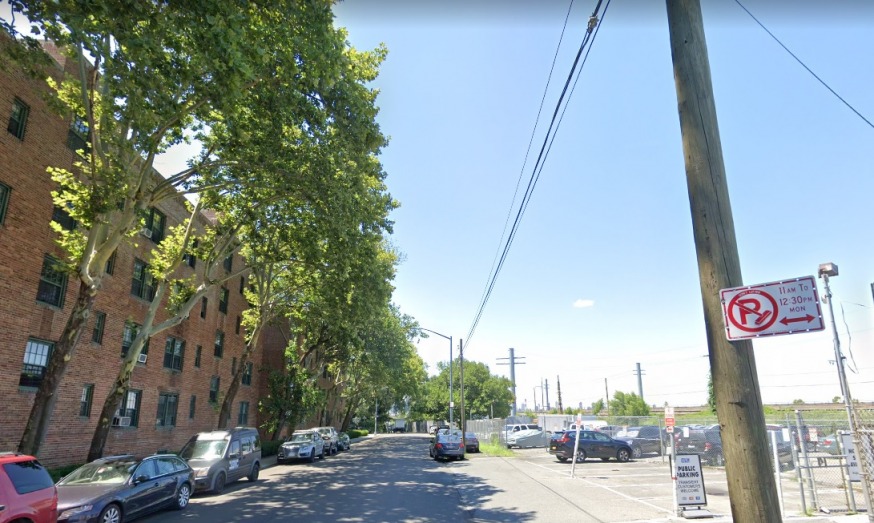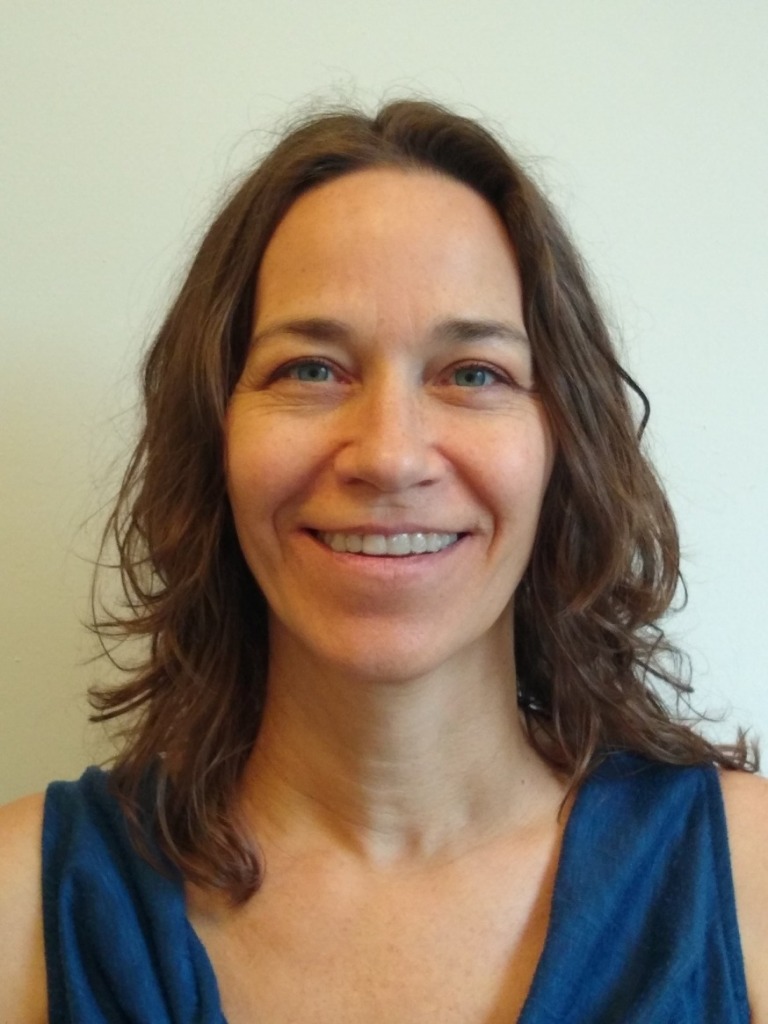
Barnett Ave. rezoning site (Google Maps)
March 10, 2021 Op-Ed By Emily Sharpe
I would like to address two errors contained in Councilmember Jimmy Van Bramer’s op-ed explaining why he has decided to approve Phipps’ Barnett Avenue rezoning application.
First, Councilmember Van Bramer stated: “all of this housing is for people who are at, near or below minimum wage earners.” That is simply not true.
Upon completion of the development in 2023, Phipps will disallow people earning under $32,300 for a family of one. This number is based on current trends of AMI in NYC.
Do you know who earns a bit over $32,000? Not people “at, near or below” minimum wage – Phipps would need to dip to $31,200 for that. $31,200 is what a $15/hour minimum wage worker makes for a 40-hour workweek, 52 weeks a year.
Even if the AMI doesn’t increase, minimum wage workers would not qualify for this housing today since the minimum income required for a family of one is $31,840.

Emily Sharpe (Courtesy of Emily Sharpe)
A major concern regarding this income requirement should be that it will have the effect of excluding people of color who are “far more likely to be paid poverty-level wages than white workers,” according to the Economic Policy Institute’s study marking the 50th anniversary of the Poor People’s Campaign.
It will also exclude single adult men and women who I believe would want to live there. Men and women who don’t benefit much from social programs or receive extra housing subsidies because they don’t have children – a requirement for a program like CityFEPS.
Will we be housing formerly incarcerated people? A young black man who was the target of racist policing, went to jail for having marijuana in his pocket, and now has difficulty finding even a minimum wage job?
Second, Councilmember Van Bramer stated: “Phipps can and must do better by its tenants, but claiming they are slumlords doesn’t bear out.”
Again, that is simply not true. It does bear out. And it’s not just me or tenants in Phipps’ current building in Sunnyside “claiming” Phipps Houses Group is a slumlord – it’s based on HPD records, Marshals evictions data, and other sources compiled by a group known as “The Right to Counsel NYC Coalition”.
This coalition includes over 25 well-respected organizations such as AARP, Legal Aid Society, Bronx Defenders, Center for Independence of the Disabled in New York, DC37, Coalition for the Homeless and many more.
When it comes to landlords in NYC, forgive me if I believe the tenants with the data. Their data shows that Adam Weinstein, CEO of Phipps, was NYC’s 11th Worst Evictor in 2019. Currently, Phipps is demolishing Lambert Houses in the Bronx – an 800-unit complex of truly affordable housing less than 50 years old. In its place will be taller towers where tenants are said to be moving, but evictions have already begun – 42 since 2017 (the plan was approved at the end of 2016).
Additionally, based on data, Phipps appears to engage in what is known as “constructive eviction”. Constructive eviction is making living conditions so miserable that, tenants who can, finally give up and move out.
Since 2017, there have been 860 HPD violations at Lambert Houses. In Sunnyside, photos have circulated showing crumbling ceilings, mold-covered walls and broken windows reminiscent of abandoned buildings.
Thankfully, the DOB is acknowledging excessive violations in residential units and passed regulations that will prevent landlords from obtaining new permits until the violations are resolved and the conditions are corrected.
Unfortunately, the onus is still on the tenants, who many times fear retribution for reporting problems. As a tenant, I know I do. So, there is work to be done to push those regulations to be more stringent, but the point is that we are moving in a new direction.
In fact, two days ago, I completed a city council candidate questionnaire from another venerable housing rights group asking how I would pressure landlords to make repairs and stop harassing tenants. It also asked if I “would bar landlords on the Right to Counsel’s ‘worst evictors list,’ from bringing eviction cases while under investigation, and implement good cause evictions protections?” I said, “Yes!”.
In his op-ed, Councilmember Van Bramer also said, “[T]ruth has to matter again in government.” With that sentiment, I do agree. But I expect leaders to do more. I expect them to protect the vulnerable and focus on passing and enforcing legislation, like the DOB’s, that places tenants above landlords. That is what I believe all leaders should do.
Emily Sharpe is a 23-year Sunnyside resident, public interest attorney and founder of Stop Sunnyside Yards. Sharpe is also a candidate for city council in District 26.
3 Comments

I couldn’t really follow the first argument in this piece. As to the second argument, I would just note that her cited Evictions list includes come of the City’s very best not-for-profit housing companies.
The land value plus the construction cost plus maintenance would not justify even lower rent. If you want to go extreme, no one is going to build anymore.
Have some basic sense.
Here in South Florida they have built several affordable housing apartment complexes, that look very nice and I’m sure they will be great for the people who qualify to live there. But the sword swings both ways. They have the income “cap” so low, that someone making what I do is about $10,000 over the cap, but still I consider myself to be moderate to lower income (based on Florida cost of living). Housing qualifications should be on a case by case basis. They should base it on your actual monthly take home pay and figure 30% for your rent. Then you are responsible for all the utilities etc. That way nobody would be excluded. Putting these income caps on these complexes is just as discriminatory as making minimums to high. If taxpayer dollars subsidized the project in any way, then any citizen should be able to apply.